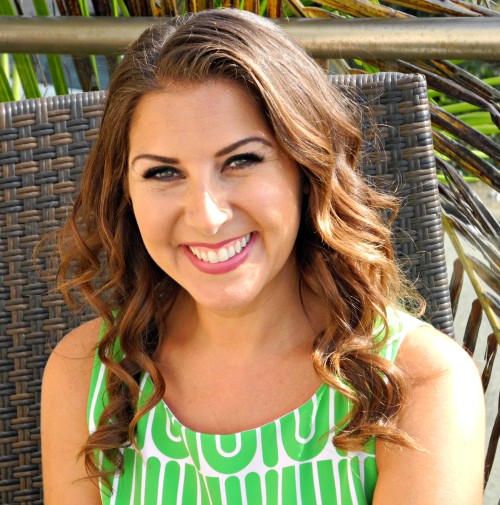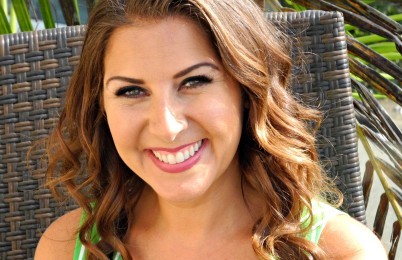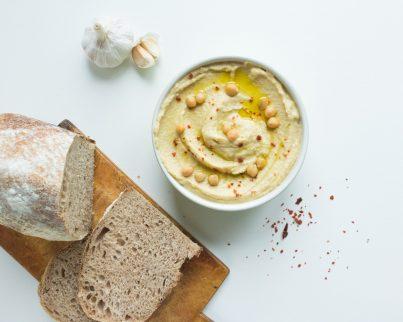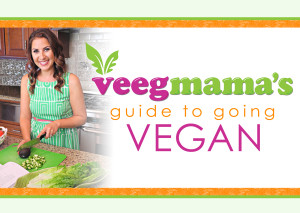When I first went vegan, I became fiercely passionate about my new lifestyle and wanted to share it with others – even shout it from the rooftops so everyone could also feel as great as I did. I immediately found that this turned many people off. I also received criticism from well-meaning friends and family members who were concerned about my health, but clearly had no factual basis on which to judge or impose advice. I found that the best way to respond was to stay true to my convictions, while doing my best to educate myself to be able to factually explain the health benefits of my lifestyle and how I was taking care of myself.
Transitioning to a vegan diet and lifestyle is daunting enough, but the social aspect can be just as overwhelming. In my new ebook, VeegMama’s Guide To Going Vegan, I share tips and provide information on how to transition easily and joyfully to a plant-based lifestyle.

Below are some common questions you may receive from well-meaning friends and family, and some sample compassionate responses.
“But milk does a body good.”
A: Actually it doesn’t. Our bodies are not meant to drink any milk except that of our own mother – and that’s when we are infants!
Why would we accept another creature’s milk when we are adults? Do you know of any other animal that drinks another species’ milk? We are not meant to digest cow’s milk (or any other animal), which is why we have such high lactose intolerance rates in the U.S.
Aside from this, milk is linked to cancer, asthma, and allergies.
And let’s talk about osteoporosis. Although cow’s milk does contain calcium, it also causes the body to release even more of it! Plant-based sources of calcium such as chickpeas, collard greens, almonds, sesame seeds, and sea vegetables contain plenty of calcium and they are more readily absorbed by the body than cow’s milk.
“We ate meat as cave men. It’s what God and nature intended for us to eat.”
A: Umm, not really. Our genetic makeup is most similar to a chimpanzee (a vegetarian) than to that of any other species on the planet. Our intestines are long in order to absorb the minerals and nutrients of fruits and plants in adequate time. Carnivorous animals have short intestines so they can get rid of the acidic waste that comes with animal protein. Our livers have a low tolerance for uric acid, a by-product of digesting animal protein, whereas carnivorous animals such as tigers have an enzyme in their livers that allow them to break down uric acid fifteen times more than a human liver’s ability. Our back molars are appropriate for grinding plants. We don’t have fangs, claws, or sharply pointed teeth like carnivorous animals in order to devour animals.
“I don’t believe in extreme diets.”
A: Veganism is not a diet. It’s a lifestyle and decision to live and act in a manner that is compassionate towards animals.
“But how will you get enough protein?”
A: There are lots of plant-based ways to get protein. Vegetables have plenty of protein!
“I could never give up cheese!”
A: I was a huge cheese lover. Then, I learned the cruel reality that cows must go through just so we can eat cheese – forcibly impregnated to produce milk while their young are stolen from them, visibly distressed by having their babies kidnapped from them. And medical research has found cheese to be directly responsible for many cancers. With all of the amazing non-dairy cheese alternatives available now, giving up dairy cheese was easy!
If the information above doesn’t convince you, start weaning off your cheese gradually, but I bet once you educate yourself on the facts behind the cheese industry and the animal treatment process, you won’t find it too hard to give up.
(Editors Note: Once you find out about the cruelty and intensely unhealthful issues behind eating dairy – you’ll likely want to quit it. Try the endless plant-based cheeses on the market – like Daiya for melting or Treeline for wine & cheese which taste just as good minus the cruelty)
I also recommend coming up with a two or three sentence blurb you can recite calmly and intelligently that explains why you are going vegan. I use it whenever I feel I am being put on the defensive or attacked because of my lifestyle. Mine goes something like this:
I decided to go vegan because I wanted to live a cruelty-free lifestyle. After learning how much healthier a plant-based diet is for my body and the planet, I became very passionate about veganism and protecting animals. The more I learn about the realities of factory farming and plant-based nutrition, the more grateful I am for my choice.
Want more tips? Order Stephanie’s new book!
Post by Stephanie Dreyer: a writer, mama of 3, and the founder of VeegMama, a lifestyle blog sharing new approaches to healthy living and eating.
Excerpted from new ebook, VeegMama’s Guide To Going Vegan




